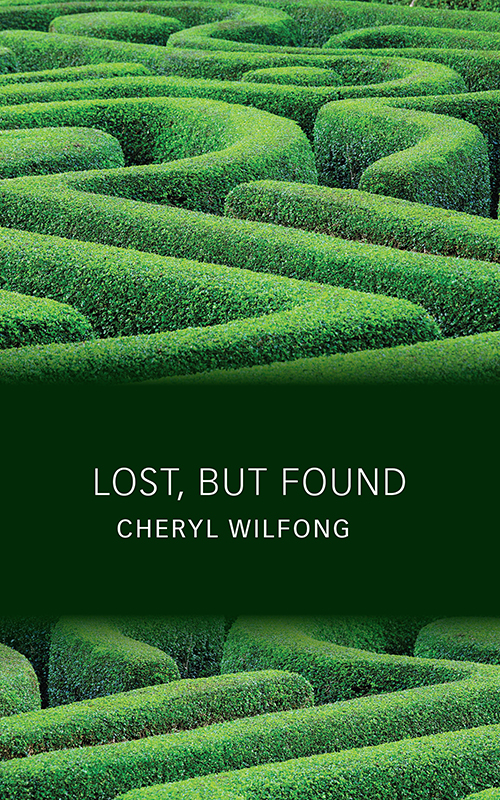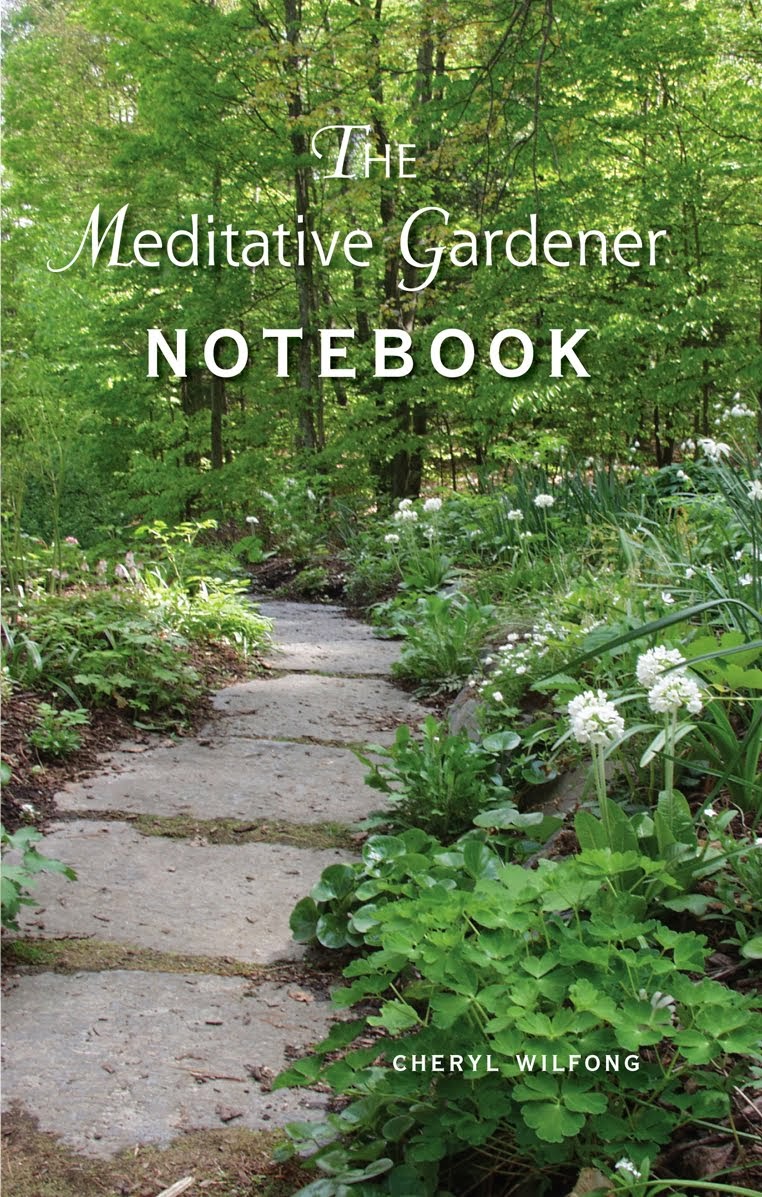When i planted onions in my community garden plot, i improved the soil by adding compost. Now this particular compost came from my home vegetable garden, which is surrounded by strip beds of annual flowers for cutting.
So, most of the "weeds" that are growing in my onions are flowers :) So far, i've dug out 8 dozen Nicotiana and 1 dozen Verbascum (a sweet perennial mullein that is only 2 feet tall.) I haven't had the heart to weed out Cleome, Nigella, Chinese forget-me-not (Cynoglossum), or the opium poppy that is about to bloom.
This serendipitous interplanting of flowers among the onions is an example of the pleasant (volunteer flowers) becoming unpleasant (potentially shading out the onions that prefer clear ground.)
In our daily lives, we might prefer sweet-smelling Nicotiana to stinky onions, but when it comes to cooking, we prefer onions to tobacco.
So we look at the long-term benefit. Things that are pleasant now--flowers--lead to later unpleasantness--a poor harvest of onions. Things that are stinky now (e.g., renouncing a bad habit) turn out to nourish and sustain us.
For the time being, i'm trying to have both flowers and onions, but i have to separate them. And soon.
Thursday, June 30, 2011
Wednesday, June 29, 2011
Russian Red Kale
Russian red kale has volunteered in the vegetable garden, and it looks so much stronger than the Russian red that i started from seed, which is about salad/mesclun size. Now i have twice the amount of kale i expected. (So send me your kale recipes!)
Last year, the Russian red emerged from winter growing tender young leaves on the thick old brown stalks of the previous year (that i had not pulled up and cleaned up out of the garden.) I kept cutting the tender kale, which became usual-sized in the summer, and eventually flowered and went to seed. I have to say i was surprised this spring to see kale growing in my onion patch and 20 feet away in the cucumber patch.
No matter what age we are, we can harvest the fruits (or vegetables :) of our meditation practice. Our practice can grow lovely, delicious small insights. (e.g., "I'm going to hold my tongue for a minute right now.") Our practice can sustain us. And occasionally we may find new insights sprouting in our lives.
In these ways, we harvest our practice. And the people around us also reap the benefits of our moment of calm in the midst of the tempest of daily life.
Last year, the Russian red emerged from winter growing tender young leaves on the thick old brown stalks of the previous year (that i had not pulled up and cleaned up out of the garden.) I kept cutting the tender kale, which became usual-sized in the summer, and eventually flowered and went to seed. I have to say i was surprised this spring to see kale growing in my onion patch and 20 feet away in the cucumber patch.
No matter what age we are, we can harvest the fruits (or vegetables :) of our meditation practice. Our practice can grow lovely, delicious small insights. (e.g., "I'm going to hold my tongue for a minute right now.") Our practice can sustain us. And occasionally we may find new insights sprouting in our lives.
In these ways, we harvest our practice. And the people around us also reap the benefits of our moment of calm in the midst of the tempest of daily life.
Tuesday, June 28, 2011
The Happiness of Pansies

The pansies in a pot on my front step are looking rather bedraggled now. After 5 days of rain, summer heat has arrived, and the cool-weather pansies have their tongues hanging out.
In April, i depend on pansies for a spot of color, and they bloom sweetly all the way through May, but now, they are leggy and lost in the lushness of June.
In April, the pansies' smiling faces make me so happy. Now i barely notice them, and when i do, i frown at their deadheads and long-legs. That which was pleasant becomes unpleasant.
Where does true happiness reside?
Are we content with the perpetual chase for pleasantness?
Does pleasantness = happiness?
The pansies and the outer world are in a constant state of flux. Our happiness cannot depend on ever-changing outer conditions, which shift from pleasant to unpleasant and back again moment to moment.
Happiness lies inside us when we see and accept things as they really are. Pansies blossom and die. Can we find our peace of mind right there?
Monday, June 27, 2011
Strawberry Shortcake
It's strawberry season here in the North Country, and Saturday night, we went to a strawberry shortcake dinner at the nearby church.
The summer menu of potato salad, macaroni salad, cole slaw, and cold ham was just a prelude to the main attraction: a layered shortcake with strawberries and whipped cream between the layers and dolloped generously on top.
Tables of 8 were served family-style with a platter of strawberry layered-shortcake. The server cut the confection into 8 pieces before our eyes, while an electric beater whirring in the background whipped up more cream for the next strawberry construction that would go to some other table of 8.
Strawberries: pleasant
Whipped cream: pleasant
Shortcake: pleasant (Believe you me, the church women have this recipe perfected!)
Savoring each pleasant bite and pouring leftover strawberry juice from the empty platter on top of my shortcake, i soaked it from its buttercream color to pink-red.
Pleasant. Pleasant. Pleasant.
And then, even though more remained on my plate: unpleasant.
I picked out the 3 remaining strawberries and popped them in my mouth: pleasant to the tongue, but unpleasant to the stomach.
A soggy pink tennis-ball-sized piece of shortcake remained on my plate: unpleasant.
Pleasant becomes unpleasant. Amazing, isn't it?
5 minutes ago, we thought our happiness depended on strawberry shortcake. Now that self-same dessert makes us unhappy.
Where DOES happiness truly reside?
Maybe we'll go pick a flat of strawberries this afternoon :)
The summer menu of potato salad, macaroni salad, cole slaw, and cold ham was just a prelude to the main attraction: a layered shortcake with strawberries and whipped cream between the layers and dolloped generously on top.
Tables of 8 were served family-style with a platter of strawberry layered-shortcake. The server cut the confection into 8 pieces before our eyes, while an electric beater whirring in the background whipped up more cream for the next strawberry construction that would go to some other table of 8.
Strawberries: pleasant
Whipped cream: pleasant
Shortcake: pleasant (Believe you me, the church women have this recipe perfected!)
Savoring each pleasant bite and pouring leftover strawberry juice from the empty platter on top of my shortcake, i soaked it from its buttercream color to pink-red.
Pleasant. Pleasant. Pleasant.
And then, even though more remained on my plate: unpleasant.
I picked out the 3 remaining strawberries and popped them in my mouth: pleasant to the tongue, but unpleasant to the stomach.
A soggy pink tennis-ball-sized piece of shortcake remained on my plate: unpleasant.
Pleasant becomes unpleasant. Amazing, isn't it?
5 minutes ago, we thought our happiness depended on strawberry shortcake. Now that self-same dessert makes us unhappy.
Where DOES happiness truly reside?
Maybe we'll go pick a flat of strawberries this afternoon :)
Sunday, June 26, 2011
Pleasant AND Unpleasant
On Friday, i attended the North Hill Garden Symposium: 200 people sitting on plastic folding chairs under a tent in a 55-degree drizzle.
The conditions were uncomfortable, but the speakers were brilliant. The 4 very best nurseries in the state had a selection of their rare wares for sale; the plants were unusual and otherwise unfindable. I sat beside the editor of Country Gardens magazine.
Pleasant: the speakers, the plants, the food
Unpleasant: the chill, the wet, and the hard chairs
If you are a person who focuses on the pleasant, you would have had a wonderful time chatting with luminaries of the gardening world.
If you are a person who focuses on the unpleasant, you would have complained about the weather and your lack of warm clothing while sitting still for 2 hours in the morning and another 2 hours in the afternoon.
The type of personality that chases the pleasant is called "greedy," because they crave the next pleasant experience. The type of personality that pushes the unpleasant away is called "aversive," because they want the unpleasant to end. Right now.
Which one do you resonate to?
And which type do you think i am? (Hint: re-read the first sentence.)
(If you don't know, then you may fall into the third category: Delusional.)
The conditions were uncomfortable, but the speakers were brilliant. The 4 very best nurseries in the state had a selection of their rare wares for sale; the plants were unusual and otherwise unfindable. I sat beside the editor of Country Gardens magazine.
Pleasant: the speakers, the plants, the food
Unpleasant: the chill, the wet, and the hard chairs
If you are a person who focuses on the pleasant, you would have had a wonderful time chatting with luminaries of the gardening world.
If you are a person who focuses on the unpleasant, you would have complained about the weather and your lack of warm clothing while sitting still for 2 hours in the morning and another 2 hours in the afternoon.
The type of personality that chases the pleasant is called "greedy," because they crave the next pleasant experience. The type of personality that pushes the unpleasant away is called "aversive," because they want the unpleasant to end. Right now.
Which one do you resonate to?
And which type do you think i am? (Hint: re-read the first sentence.)
(If you don't know, then you may fall into the third category: Delusional.)
Friday, June 24, 2011
The Tire Retaining Wall
When i moved in to my house 31 years ago, i had more energy and time than i had money, so i built a retaining wall out of tires to hold back my east hillside. Tires? Over the years they have been covered by creeping thyme and, more recently, sedum.
Yesterday i started taking the wall of tires apart to make way for some stonework. Change comes hard for the other person in my household. "If it ain't broke, don't fix it," he says.
I see the homemade quality of the tires, which look generally good, but sloppy in the detail work. I look ahead to the time when our aging bodies will need to move out of a 3-story house into one level. I do think a stone retaining wall will sell better than a tire wall.
The garden changes from day to day. That east hillside flowerbed is now bare earth, and the retaining wall is in the middle of being deconstructed so that a reconstruction can begin.
Impermanence.
And after wrestling sand-filled tires out of the dirt for a couple of hours, and bouncing the sand out of them, i am tire-d!
Yesterday i started taking the wall of tires apart to make way for some stonework. Change comes hard for the other person in my household. "If it ain't broke, don't fix it," he says.
I see the homemade quality of the tires, which look generally good, but sloppy in the detail work. I look ahead to the time when our aging bodies will need to move out of a 3-story house into one level. I do think a stone retaining wall will sell better than a tire wall.
The garden changes from day to day. That east hillside flowerbed is now bare earth, and the retaining wall is in the middle of being deconstructed so that a reconstruction can begin.
Impermanence.
And after wrestling sand-filled tires out of the dirt for a couple of hours, and bouncing the sand out of them, i am tire-d!
Thursday, June 23, 2011
The View of Hillside Plantings
I emailed Perennial Swappers and told them to come over and rummage through the piles of plants that used to grow on my east hillside.
Annamarie loaded up her station wagon. She was thrilled to take the spreaders for her south-facing hillside. All i saw was the amount of digging she was going to have to do, and, knowing her hillside tangle, i had my doubts.
These 2 perspectives (hers and mine) are examples of our views, and Right View is the first step on the Noble 8-fold Path.
My view that she had a LOT of work in front of her caused me dismay, and that is obviously a form of suffering. At the same time i was happy that the plants were finding a second home. This generous view causes happiness (and not suffering).
Like Annamarie, i have my own thrilling plans for my now-bare hillside. My doubt about her following through on all that planting is actually me projecting my doubts about myself onto her. (Tricky, isn't it? But how convenient!)
Yesterday i stopped at Annamarie's, and she proudly pointed out her new hillside plantings. It had taken her a couple of hours, but she did it. And it's a great view from her living room window.
Annamarie loaded up her station wagon. She was thrilled to take the spreaders for her south-facing hillside. All i saw was the amount of digging she was going to have to do, and, knowing her hillside tangle, i had my doubts.
These 2 perspectives (hers and mine) are examples of our views, and Right View is the first step on the Noble 8-fold Path.
My view that she had a LOT of work in front of her caused me dismay, and that is obviously a form of suffering. At the same time i was happy that the plants were finding a second home. This generous view causes happiness (and not suffering).
Like Annamarie, i have my own thrilling plans for my now-bare hillside. My doubt about her following through on all that planting is actually me projecting my doubts about myself onto her. (Tricky, isn't it? But how convenient!)
Yesterday i stopped at Annamarie's, and she proudly pointed out her new hillside plantings. It had taken her a couple of hours, but she did it. And it's a great view from her living room window.
Wednesday, June 22, 2011
Spreaders--in the Garden and in Life
I now have a hillside's worth of plants laid out on tarps in the shade. It's odd to look at 20 years worth of plants stacked up like piles of clothes at a rummage sale.
In the digging, i discovered several white plastic plant tags of plants that didn't make it. In the end, the spreaders prevailed--golden glow, spiderwort, Artemisia, evening primrose, daylilies, irises, and goatsbeard (Aruncus). I found 2 delphiniums and a puny peony. The white Echinacea never took hold.
When we look back at the fruits (or flowers) of our life, what do we see that prevailed? Material goods (e.g., "The one with the most toys wins.")? Good works? Work? Family?
And what is it that we intend?
A month before she died, my mother said, "I didn't intend for it to turn out this way, but that's the way life goes when you mistreat it." (She was an alcoholic.)
One of my intentions is to meditate for 2 or 3 hours a day, but i seldom do. I've recently made a pact with a Dharma friend to meditate 2 hours a day. This "Dharma dare" is helping me reach my goal, but it's still hard.
The spreaders in my life--the garden itself, various commitments, and just plain busy-ness--threaten to overrun my good intentions. "Later," i think. But it may be later than i think.
In the digging, i discovered several white plastic plant tags of plants that didn't make it. In the end, the spreaders prevailed--golden glow, spiderwort, Artemisia, evening primrose, daylilies, irises, and goatsbeard (Aruncus). I found 2 delphiniums and a puny peony. The white Echinacea never took hold.
When we look back at the fruits (or flowers) of our life, what do we see that prevailed? Material goods (e.g., "The one with the most toys wins.")? Good works? Work? Family?
And what is it that we intend?
A month before she died, my mother said, "I didn't intend for it to turn out this way, but that's the way life goes when you mistreat it." (She was an alcoholic.)
One of my intentions is to meditate for 2 or 3 hours a day, but i seldom do. I've recently made a pact with a Dharma friend to meditate 2 hours a day. This "Dharma dare" is helping me reach my goal, but it's still hard.
The spreaders in my life--the garden itself, various commitments, and just plain busy-ness--threaten to overrun my good intentions. "Later," i think. But it may be later than i think.
Tuesday, June 21, 2011
The Long View
I attended a garden party on Sunday afternoon. The terrace with a 10-mile view was large enough to comfortably seat 5 conversation groups.
The long view settles us, calms us. Then our focus reverts to the people sitting near us and the conversation narrows our attention on something near, and perhaps dear. Maybe the topic pricks us ever so slightly--family or local politics--or fluffs up our ego--family or our accomplishments or one of our opinions that we are sure is correct.
The long view is the quality of equanimity that underlies our practice, the ocean of space that surrounds us. Of course, our attention focuses on some thing near, some thing recognizable, some thing that feeds our sense of self.
Yet, if we step back and take the long view, we see that even these small things are held in spaciousness.
The long view settles us, calms us. Then our focus reverts to the people sitting near us and the conversation narrows our attention on something near, and perhaps dear. Maybe the topic pricks us ever so slightly--family or local politics--or fluffs up our ego--family or our accomplishments or one of our opinions that we are sure is correct.
The long view is the quality of equanimity that underlies our practice, the ocean of space that surrounds us. Of course, our attention focuses on some thing near, some thing recognizable, some thing that feeds our sense of self.
Yet, if we step back and take the long view, we see that even these small things are held in spaciousness.
Monday, June 20, 2011
Re-Arranging a Flower Bed
I'm beginning to tear apart a flower bed. Hmm. And just as it's looking pretty good--if you think overgrown looks "good."
The slope on the east side of my house faces southeast. The snow melts there first, and it's obviously so close to the house that i want to terrace it to make a kitchen garden.
That's the vision. But first, the taking apart of what is there.
Sometimes, in our lives, we'd like to rearrange our personalities. I have a couple of friends who are pretty good at re-inventing themselves every few years.
Although we may change the outer trappings--our job, our relationships, our house, or our location--our inner habits and character have been hard-wired. Laying down new tracks requires intention, effort, and energy. Part of that effort is mindfulness.
We may have a list of quirks we'd like to weed out of our personalities--anger, stinginess, or impetuousness, for instance--and a list of traits we'd like to transplant--kindness, generosity, or mindfulness.
We begin with simple awareness. "Oh, this is what it's like." And we investigate the effects on ourselves and others. "When i'm irritable...."
I'm taking mindfulness out to the garden now to dig out plants one by one.
The slope on the east side of my house faces southeast. The snow melts there first, and it's obviously so close to the house that i want to terrace it to make a kitchen garden.
That's the vision. But first, the taking apart of what is there.
Sometimes, in our lives, we'd like to rearrange our personalities. I have a couple of friends who are pretty good at re-inventing themselves every few years.
Although we may change the outer trappings--our job, our relationships, our house, or our location--our inner habits and character have been hard-wired. Laying down new tracks requires intention, effort, and energy. Part of that effort is mindfulness.
We may have a list of quirks we'd like to weed out of our personalities--anger, stinginess, or impetuousness, for instance--and a list of traits we'd like to transplant--kindness, generosity, or mindfulness.
We begin with simple awareness. "Oh, this is what it's like." And we investigate the effects on ourselves and others. "When i'm irritable...."
I'm taking mindfulness out to the garden now to dig out plants one by one.
Saturday, June 18, 2011
Self and Not-so-other
A new friend took me out her back door last evening to show me her backyard garden in town. Her lot is surprisingly deep, going back 1/3 acre to a hill. She told me the story about buying her house in a snowstorm, moving in on April Fool's day, and slowly discovering what a "park" she has behind her house.
She planted her first-ever vegetable garden. A while later she left for a couple of weeks. Returning home, she walked out to her garden and was astounded by the growth that had taken place in her absence. She said she practically leapt backwards out of her garden because she saw Life.
In that moment, that split second when she felt Life all around her, she saw that the plants are not different than her. Or, to say it another way, she is the same as the plants.
This sort of deep seeing, this "insight" can happen when the mind is content and calm. Deep seeing such as this requires a momentary stillness of mind.
We may not have directly experienced the sudden awakening of "I am that." ("And that. And that. And that too.") Most of us take a more gradual path, perhaps relying on "back-door" insights that arise from our contemplations, such as The Meditative Gardener is full of.
We already have an intuitive sense that self and other are not different. This is why the Golden Rule makes so much sense:
Our own desire to be treated well by others is why we plant seeds of kindness toward others--in our backyard gardens and in our life.
She planted her first-ever vegetable garden. A while later she left for a couple of weeks. Returning home, she walked out to her garden and was astounded by the growth that had taken place in her absence. She said she practically leapt backwards out of her garden because she saw Life.
In that moment, that split second when she felt Life all around her, she saw that the plants are not different than her. Or, to say it another way, she is the same as the plants.
This sort of deep seeing, this "insight" can happen when the mind is content and calm. Deep seeing such as this requires a momentary stillness of mind.
We may not have directly experienced the sudden awakening of "I am that." ("And that. And that. And that too.") Most of us take a more gradual path, perhaps relying on "back-door" insights that arise from our contemplations, such as The Meditative Gardener is full of.
We already have an intuitive sense that self and other are not different. This is why the Golden Rule makes so much sense:
Do unto others as you would have them do unto you.
Or as the Buddha said:
As I am, so are others;
as others are, so am I.
Having thus identified self and others,
harm no one nor have them harmed.
as others are, so am I.
Having thus identified self and others,
harm no one nor have them harmed.
Our own desire to be treated well by others is why we plant seeds of kindness toward others--in our backyard gardens and in our life.
Friday, June 17, 2011
Garden Path
I drove my truck to a nearby sawmill yesterday to get a load of wood chips. I use wood chips for paths, and this works particularly neatly in the vegetable garden. I subscribe to the theory that repeated walking--as one does in the veggie garden--packs down the soil. So my paths in the vegetable garden remain the same year after year, between beds.
New wood chips give a fresh, clean look to the paths and keep the weeds down.
The spiritual path we are walking begins with Right View. Right View understands 2 things:
(1) You reap what you sow--in thoughts, words, and actions.
(aka karma) and
(2) The 3 characteristics of all experience.
New wood chips give a fresh, clean look to the paths and keep the weeds down.
The spiritual path we are walking begins with Right View. Right View understands 2 things:
(1) You reap what you sow--in thoughts, words, and actions.
(aka karma) and
(2) The 3 characteristics of all experience.
- The garden is ever-changing
- Discontent happens in the garden (e.g., bugs, weather, disease, and death)
- Our "garden" is a slow-moving verb, a process that flows on from moment to moment, and as such, has no inherent existence. (Don't worry if you don't understand this mind-bender. Just let it flow away. Gone!)
Wednesday, June 15, 2011
A Bear and a Problem
A black bear prowled around our house last evening, just before sunset. It smelled the birdfeeder on a second-story deck in which we keep only a handful of seeds at a time. Fortunately, it did not climb up the 10 feet to lick up a few stray sunflower seeds.
Inside the house, my sweetie was running from door to door, locking them, and closing the garage door, which leads to the trash can where we store our birdseed. The trash can protects the seed from mice, but would be easy pickings for a bear.
Sometimes our minds are grappling with a "bear" of a problem that prowls around our mind, ravenously hungry, and looking for any excuse to justify our words or actions. The "I" wants to be right, and it will toss and turn the body for hours in the middle of the night to prove its point, over and over again.
The visit from the bear encourages me to clean up my act:
(1) don't feed the birds in the summer
(2) NO meat scraps in the compost
How do we clean up our mind?
We practice compassion for ourselves and for the "bear" of a problem.
We practice kindness toward ourselves first and toward the other person.
We notice what truth feels like: There's a relaxation that goes with truth. "Ahhh. Yes."
Chances are, the bear-of-a-problem has to repeat itself over and over, in our minds, telling us again and again and asking us to believe it time and time again. (Is that the definition of propaganda?) We only need to hear truth once to "know" it's true.
When you stand--or sit--on the side of truth, the mind relaxes and becomes like a still forest pool. As Achaan Chah says, "All kinds of wild animals will come to drink there." Even a black bear.
Inside the house, my sweetie was running from door to door, locking them, and closing the garage door, which leads to the trash can where we store our birdseed. The trash can protects the seed from mice, but would be easy pickings for a bear.
Sometimes our minds are grappling with a "bear" of a problem that prowls around our mind, ravenously hungry, and looking for any excuse to justify our words or actions. The "I" wants to be right, and it will toss and turn the body for hours in the middle of the night to prove its point, over and over again.
The visit from the bear encourages me to clean up my act:
(1) don't feed the birds in the summer
(2) NO meat scraps in the compost
How do we clean up our mind?
We practice compassion for ourselves and for the "bear" of a problem.
We practice kindness toward ourselves first and toward the other person.
We notice what truth feels like: There's a relaxation that goes with truth. "Ahhh. Yes."
Chances are, the bear-of-a-problem has to repeat itself over and over, in our minds, telling us again and again and asking us to believe it time and time again. (Is that the definition of propaganda?) We only need to hear truth once to "know" it's true.
When you stand--or sit--on the side of truth, the mind relaxes and becomes like a still forest pool. As Achaan Chah says, "All kinds of wild animals will come to drink there." Even a black bear.
Tuesday, June 14, 2011
The Ever-Changing Garden
A Thai friend who has beautiful gardens and who arranges flowers and leaves so artfully has received her third diagnosis of cancer.
I emailed her a note of sympathy, and she responded:
"No birth. No death. It's the anatta [not-self]. I am not holding on to the notion of existence. Life itself is an illusion. We are passing, evolving, changing, and transforming away from the illusion."
Just like our gardens that evolve, change, and transform from day to day, from hour to hour, and, if we can apply the microscope of our attention, from minute to minute.
A noun is simply a slow-moving verb. The noun "garden," for instance.
We may like or dislike the changes, but what's the use of liking/disliking? The changes simply happen. The garden, the elements of the garden, move on.
Pronouns are faster-changing verbs. "I," "me," "mine" change from moment to moment. The in-breath is completely different molecules from the out-breath (CO2). The "I" is born minute after minute, second after second. Pay attention. Notice moments of not-I, maybe when you are quite relaxed. Those "not-I" moments are moments of no birth, no death either. When we hold on to the notion of existence, we perish.
Just life unfolding.
I emailed her a note of sympathy, and she responded:
"No birth. No death. It's the anatta [not-self]. I am not holding on to the notion of existence. Life itself is an illusion. We are passing, evolving, changing, and transforming away from the illusion."
Just like our gardens that evolve, change, and transform from day to day, from hour to hour, and, if we can apply the microscope of our attention, from minute to minute.
A noun is simply a slow-moving verb. The noun "garden," for instance.
We may like or dislike the changes, but what's the use of liking/disliking? The changes simply happen. The garden, the elements of the garden, move on.
Pronouns are faster-changing verbs. "I," "me," "mine" change from moment to moment. The in-breath is completely different molecules from the out-breath (CO2). The "I" is born minute after minute, second after second. Pay attention. Notice moments of not-I, maybe when you are quite relaxed. Those "not-I" moments are moments of no birth, no death either. When we hold on to the notion of existence, we perish.
Just life unfolding.
Monday, June 13, 2011
Tiny Tastes of Calm
Deb Lazar showed me around her community garden plots--she has 2 and her husband has one. She has a fantastic crop of basil. It's only 1-inch tall at the moment, but add rain and sun, and soon she'll have a forest of basil bushes.
Our meditation practice is like this: we start with a 1-second taste of calm. Notice that one second. Revel in it. Sink into it. Paying attention to momentary calm is the rain. Coming back to the cushion is the sun. Yes, some days, like today, are overcast, and maybe even one second of calm doesn't show through the clouds of mind chatter.
Keep tending that momentary calm. By the end of the summer, you'll have a crop of it.
Our meditation practice is like this: we start with a 1-second taste of calm. Notice that one second. Revel in it. Sink into it. Paying attention to momentary calm is the rain. Coming back to the cushion is the sun. Yes, some days, like today, are overcast, and maybe even one second of calm doesn't show through the clouds of mind chatter.
Keep tending that momentary calm. By the end of the summer, you'll have a crop of it.
Sunday, June 12, 2011
Pruning--Inside and Out
I need to reduce my iris clumps by half now that they've finished blooming. The mature garden is an overgrown garden. Perennials grow into each other--a look that i like, although well-separated, well-defined clumps seem to be the style nowadays.
The perennial gardener is forever busy dividing these various overgrown colonies. I want to keep 1/3 of the pulmonaria near the terrace and give the other 2/3 away.
The stuff inside our houses accumulates as well, and it takes on-going intention and effort to reduce clothes, clutter, and collections. "Keep pruning" is my motto, although the other person in my house isn't as focused on this as i am.
We reduce our possessions--flowers, vegetables, or paraphernalia by offering them for re-use. Flowers to other gardeners. Vegetables to neighbors or the community or church food shelf . Pass along paraphernalia at a yard sale or give it to a thrift shop (i.e., Goodwill) or to the homeless shelter (e.g., toiletries from hotels). I send the really low-quality junk to the Swap Program at the landfill because i know Mr. & Ms. Fix-It come there as well as people on fixed incomes. The Swap Program keeps tons of stuff OUT of the landfill.
In these ways we practice generosity--toward others and toward the earth.
The perennial gardener is forever busy dividing these various overgrown colonies. I want to keep 1/3 of the pulmonaria near the terrace and give the other 2/3 away.
The stuff inside our houses accumulates as well, and it takes on-going intention and effort to reduce clothes, clutter, and collections. "Keep pruning" is my motto, although the other person in my house isn't as focused on this as i am.
We reduce our possessions--flowers, vegetables, or paraphernalia by offering them for re-use. Flowers to other gardeners. Vegetables to neighbors or the community or church food shelf . Pass along paraphernalia at a yard sale or give it to a thrift shop (i.e., Goodwill) or to the homeless shelter (e.g., toiletries from hotels). I send the really low-quality junk to the Swap Program at the landfill because i know Mr. & Ms. Fix-It come there as well as people on fixed incomes. The Swap Program keeps tons of stuff OUT of the landfill.
In these ways we practice generosity--toward others and toward the earth.
Saturday, June 11, 2011
What Flowers in Your Life?

I cut my first bouquet of zinnias yesterday, from plants i started from seed. It's particularly gratifying that they have begun to bloom in colors i enjoy--a lot of Berry Mix and a few Crayon (red, orange, yellow).
The seeds we plant in meditation--mindfulness, kindness, calm, gratitude, energy, attention--also flower in our daily life. Mindfulness begins to pop up unexpectedly in our daily activities. We find ourselves being kind to other drivers. We feel calmer in the face of the unknown future. We may even like ourselves better.
Plant seeds of mindfulness today and see what flowers in your life. E-mail me and tell me about it.
Friday, June 10, 2011
Stinky Compost
When i talk about my book, at a book signing, for instance, the conversation often veers off into compost. What's the best method? "It depends" is my answer.
If you're a city/town dweller, then you probably want one of those black plastic units. Our landfill sells them for a cheaper price than you can buy them in the catalog.
If you live in bear country (and there are more and more reports of bears nearby), then you want a really big, heavy, black plastic unit that the lid screws on to. The bears may roll it away, but they (hopefully) won't be able to get into it.
I live in the country, so i have 3 open bins--each made of 4 pallets that are simply tied together in a square with clothesline. E-Z. Yes, critters come to the pile. I see chipmunks and bluejays picking their way through it in the morning, and i'm sure raccoons come at night. Last evening, i made my final run to the compost pile at 9 p.m. and beaned a skunk on the nose with a watermelon rind. I didn't stick around for a closer sighting, once i saw that furry white tail start to twitch. When my sweetie came home 15 minutes later, he said he smelled skunk.
Our thoughts and actions go into a "compost pile" from moment to moment. A thought arises, then it passes. A deed happens, then it's over. Even though it's gone, gone, really gone, it leaves the track of its valence. A wholesome thought or deed--of kindness or generosity--lays the path for more wholesome thoughts and deeds. An unwholesome thought or deed lays the pathway for more of the same. In the language of neuroscience, "Neurons that fire together, wire together." In the language of gardeners, "You reap what you sow."
So be careful what you compost. Those stinky thoughts may come back to haunt you.
If you're a city/town dweller, then you probably want one of those black plastic units. Our landfill sells them for a cheaper price than you can buy them in the catalog.
If you live in bear country (and there are more and more reports of bears nearby), then you want a really big, heavy, black plastic unit that the lid screws on to. The bears may roll it away, but they (hopefully) won't be able to get into it.
I live in the country, so i have 3 open bins--each made of 4 pallets that are simply tied together in a square with clothesline. E-Z. Yes, critters come to the pile. I see chipmunks and bluejays picking their way through it in the morning, and i'm sure raccoons come at night. Last evening, i made my final run to the compost pile at 9 p.m. and beaned a skunk on the nose with a watermelon rind. I didn't stick around for a closer sighting, once i saw that furry white tail start to twitch. When my sweetie came home 15 minutes later, he said he smelled skunk.
Our thoughts and actions go into a "compost pile" from moment to moment. A thought arises, then it passes. A deed happens, then it's over. Even though it's gone, gone, really gone, it leaves the track of its valence. A wholesome thought or deed--of kindness or generosity--lays the path for more wholesome thoughts and deeds. An unwholesome thought or deed lays the pathway for more of the same. In the language of neuroscience, "Neurons that fire together, wire together." In the language of gardeners, "You reap what you sow."
So be careful what you compost. Those stinky thoughts may come back to haunt you.
Thursday, June 9, 2011
Discontent in the Garden
I planted winter squash seeds yesterday--about 3 weeks too late according to my reckoning. The soil was dusty dry, and the afternoon had heated up to 88 degrees, so even the small effort of dragging a hoe through the clumpy, caked soil and pulling a few clods of field weeds drenched me with sweat.
This is one small vignette of discontent in the garden. I'm sure you could tell me your story, and then we'd commiserate with each other. Does this mean gardening is co-misery?
Listening to gardening conversations, you might wonder why people willing put themselves through such dissatisfactions with bugs, plant diseases, and weather. And then the comparing mind (the only one we have) looks at the neighbor's garden and wonders why my beets are 2 inches tall and hers are a foot tall.
All this discontent doesn't stop the green thumb from getting dirt under her fingernails. We know in our heart that joy and calm are lurking somewhere out there in the garden.
Pull the weeds of discontent--not by pulling weeds, but by simply relaxing into the garden as it is, without wishing for anything different. Contentment is a form of wishlessness, a place our heart can come to rest.
The mind is like Velcro for discontent and like Teflon for contentment.* To overcome this "negativity bias," we have to focus on contentment for 30 seconds in order to start building the neural pathways that will enable us to more easily fall into contentment.
Start now. Look at a flower for 30 seconds. View your garden through a window from inside your house for 30 seconds. Stroll through your garden in the early morning or after dinner and just relax.
* This paraphrase comes from a quote by Rick Hanson, author of Buddha's Brain: the practical neuroscience of happiness, love & wisdom.
This is one small vignette of discontent in the garden. I'm sure you could tell me your story, and then we'd commiserate with each other. Does this mean gardening is co-misery?
Listening to gardening conversations, you might wonder why people willing put themselves through such dissatisfactions with bugs, plant diseases, and weather. And then the comparing mind (the only one we have) looks at the neighbor's garden and wonders why my beets are 2 inches tall and hers are a foot tall.
All this discontent doesn't stop the green thumb from getting dirt under her fingernails. We know in our heart that joy and calm are lurking somewhere out there in the garden.
Pull the weeds of discontent--not by pulling weeds, but by simply relaxing into the garden as it is, without wishing for anything different. Contentment is a form of wishlessness, a place our heart can come to rest.
The mind is like Velcro for discontent and like Teflon for contentment.* To overcome this "negativity bias," we have to focus on contentment for 30 seconds in order to start building the neural pathways that will enable us to more easily fall into contentment.
Start now. Look at a flower for 30 seconds. View your garden through a window from inside your house for 30 seconds. Stroll through your garden in the early morning or after dinner and just relax.
* This paraphrase comes from a quote by Rick Hanson, author of Buddha's Brain: the practical neuroscience of happiness, love & wisdom.
Wednesday, June 8, 2011
Keepers
Last night I used the last of my tomatillos to make salsa verde for a pork roast from the Farmers' Market. Those tomatillos have been sitting in my basement for 9 months--ever since i harvested them last September. Now that's what i call a keeper.
No canning. No freezing. No special treatment. Just stored in a tray in a rack. So easy.
Spiritually, we keep the 5 Precepts.
-- do no harm
-- not taking what is not offered
-- refraining from sexual misconduct
-- speaking truthfully and helpfully
-- keeping our mind clear.
We keep the 5 Precepts as our base for happiness.
Doing no harm leads to less guilt and shame.
Not taking what isn't offered leads to less bother.
Refraining from sexual misconduct leads to less heartbreak.
Speaking truthfully and helpfully leads to less regret.
Keeping our mind clear leads to less poor judgment.
We can retrieve any one of the Precepts any time. They keep us safe and happy. They're keepers!
No canning. No freezing. No special treatment. Just stored in a tray in a rack. So easy.
Spiritually, we keep the 5 Precepts.
-- do no harm
-- not taking what is not offered
-- refraining from sexual misconduct
-- speaking truthfully and helpfully
-- keeping our mind clear.
We keep the 5 Precepts as our base for happiness.
Doing no harm leads to less guilt and shame.
Not taking what isn't offered leads to less bother.
Refraining from sexual misconduct leads to less heartbreak.
Speaking truthfully and helpfully leads to less regret.
Keeping our mind clear leads to less poor judgment.
We can retrieve any one of the Precepts any time. They keep us safe and happy. They're keepers!
Tuesday, June 7, 2011
Trying to Stop Transplanting
Transplanting season is over. The weather forecast predicts temperatures warming to hot with no rain for a week.
Not that the hot weather stops me from transplanting and crossing my fingers that the plants will survive.
What i should do is transplant with a shovel in one hand and the hose in the other. The trouble is my designing/artistic mind gets way ahead of my maintaining body-mind.
In this weather, a good daily sprinkling of the transplants would help establish them in their new homes. This means dragging the hose around, disconnecting hoses, reconnecting hoses and the sprinkler, traipsing back to the spigot to turn it on (or off).
Do you hear the suffering/stress/WORK associated with that first pleasant idea of transplanting the Sweet Williams out of their nursery bed and into a flower bed?
Fortunately nights are still cool--in the 50s--and the dew still falls, so the transplants have an easy night.
And after transplanting maidenhair ferns along the woodland paths (read: thick network of roots interpenetrating the thin, dry, rocky woods dirt), i too fall asleep easily.
Not that the hot weather stops me from transplanting and crossing my fingers that the plants will survive.
What i should do is transplant with a shovel in one hand and the hose in the other. The trouble is my designing/artistic mind gets way ahead of my maintaining body-mind.
In this weather, a good daily sprinkling of the transplants would help establish them in their new homes. This means dragging the hose around, disconnecting hoses, reconnecting hoses and the sprinkler, traipsing back to the spigot to turn it on (or off).
Do you hear the suffering/stress/WORK associated with that first pleasant idea of transplanting the Sweet Williams out of their nursery bed and into a flower bed?
Fortunately nights are still cool--in the 50s--and the dew still falls, so the transplants have an easy night.
And after transplanting maidenhair ferns along the woodland paths (read: thick network of roots interpenetrating the thin, dry, rocky woods dirt), i too fall asleep easily.
Monday, June 6, 2011
Memorials
Hospice had its annual Memorial Service yesterday at the Memorial Garden at Living Memorial Park.
Oh, there are so many to remember. The Living Memorial Park was created after World War II and dedicated to those who died in that war. The Hospice Memorial Garden is dedicated to those who have died during Hospice's 30-year history, including, this year, its co-founder, Pam Mayer.
The Memorial Service is dedicated to those who have died this past year in particular and any others whose names you would like to add to the list. Lerna played the dulcimer as people planted flowers in the garden and marked them with miniature "tombstones"--flat rocks as big as your palm with the name written in permanent marker.
Of course, nothing is permanent. Life is IMpermanent, changing from moment to moment, if we could but notice it.
"We remember them"--the deceased. Then we forget them--for minutes, hours, or days. Then we remember them again and re-feel our grief, our sadness at the ceasing of the deceased.
Yet everything ceases. The Memorial Service, the day, the flowers, eventually the plants, and one of these years, us.
Oh, there are so many to remember. The Living Memorial Park was created after World War II and dedicated to those who died in that war. The Hospice Memorial Garden is dedicated to those who have died during Hospice's 30-year history, including, this year, its co-founder, Pam Mayer.
The Memorial Service is dedicated to those who have died this past year in particular and any others whose names you would like to add to the list. Lerna played the dulcimer as people planted flowers in the garden and marked them with miniature "tombstones"--flat rocks as big as your palm with the name written in permanent marker.
Of course, nothing is permanent. Life is IMpermanent, changing from moment to moment, if we could but notice it.
"We remember them"--the deceased. Then we forget them--for minutes, hours, or days. Then we remember them again and re-feel our grief, our sadness at the ceasing of the deceased.
Yet everything ceases. The Memorial Service, the day, the flowers, eventually the plants, and one of these years, us.
Sunday, June 5, 2011
Reduce. Re-use. Recycle.
At a backyard party last evening, Jackie told me that she collects the used plastic knives from such events and uses them as plant markers. "I try to reuse them," she said, "so that they don't go straight to the dump."
My own version is that i re-use plastic containers of all sorts to pot up plants to give away--cherry tomato containers (after i cut off the lid), strawberry boxes, Chinese take-out boxes, hummus containers, blueberry pressed-cardboard containers, yogurt single-serving containers.
"Reduce. Re-use. Recycle." is one motto of the Voluntary Simplicity movement. When we voluntarily simplify our lives, we are practicing renunciation, and that is very counter-cultural to our consumer society.
We consider the impact of buying more plastic and try to re-use the plastic that already cycles through our lives in such great quantity.
Renunciation is a factor of awakening. Let's wake up to the impact we have on the life around us.
My own version is that i re-use plastic containers of all sorts to pot up plants to give away--cherry tomato containers (after i cut off the lid), strawberry boxes, Chinese take-out boxes, hummus containers, blueberry pressed-cardboard containers, yogurt single-serving containers.
"Reduce. Re-use. Recycle." is one motto of the Voluntary Simplicity movement. When we voluntarily simplify our lives, we are practicing renunciation, and that is very counter-cultural to our consumer society.
We consider the impact of buying more plastic and try to re-use the plastic that already cycles through our lives in such great quantity.
Renunciation is a factor of awakening. Let's wake up to the impact we have on the life around us.
Saturday, June 4, 2011
Wanting Something Different
Yesterday i had 1 hour to spend in my community garden plot. My plan was to turn over the last 1/3 of the garden, plant Brussels sprouts and red cabbage seedlings, plant turnip and rutabaga seeds. And that's as far as i got. The other 4 things on my to-do list would have taken another hour.
Since i don't usually garden by the clock, i was surprised that my body couldn't accomplish all that the mind had planned for it. I was also surprised by how time-less the garden is.
Sure, when i'm home, i often squeeze in a few gardening chores before driving off to an appointment, but i know i'll be back that day or the next. My community garden plot is a 10-minute drive from home, and i know i won't return to it for a few days. Planting the squash and the sungold cherry tomatoes will have to wait.
"Waiting" is when stress arises. I want something (planting) that cannot be had right now. Impatience, frustration, and anxiety arise--more stress.
I had a lovely time-less hour in the garden, chatting with another gardener working in her plot. That calm is overwhelmed by the desire for things to be different than they are.
Wisdom is accepting things just as they are: plot turned over, seedlings transplanted, seeds planted. Ahh. A beautiful breezy day interlude in the sunny garden.
Since i don't usually garden by the clock, i was surprised that my body couldn't accomplish all that the mind had planned for it. I was also surprised by how time-less the garden is.
Sure, when i'm home, i often squeeze in a few gardening chores before driving off to an appointment, but i know i'll be back that day or the next. My community garden plot is a 10-minute drive from home, and i know i won't return to it for a few days. Planting the squash and the sungold cherry tomatoes will have to wait.
"Waiting" is when stress arises. I want something (planting) that cannot be had right now. Impatience, frustration, and anxiety arise--more stress.
I had a lovely time-less hour in the garden, chatting with another gardener working in her plot. That calm is overwhelmed by the desire for things to be different than they are.
Wisdom is accepting things just as they are: plot turned over, seedlings transplanted, seeds planted. Ahh. A beautiful breezy day interlude in the sunny garden.
Friday, June 3, 2011
Psychic Gardening
There are days i don't go to the garden at all--except in my mind. I carry the garden with me psychically, thinking about the irises i want to transplant, the squash seeds i want to plant, and about getting a load of manure on Saturday.
Thinking about the garden is pleasant on a day, like yesterday, when i'm spending 4 hours in the car and busy away from home all day until late sunset at 8:30.
This being in one place--the car--and day-dreaming, pleasantly, about another place--my garden--is actually stress in sheep's clothing. Thinking about irises and squash and my plans for the manure are present moment thoughts while the body is seated in the car with its hands on the steering wheel and the eyes in its head gazing at a curvy road through the mountains or a straight black ribbon of interstate highway.
Tethering the mind to the body is challenging. The mind wants to go out and play while the body is chauffeuring it around.
The present moment is changing scenery of fields, forest, and rivers. Bring the attention to the sensations of driving, to the sounds of driving, to the sights of driving.
Oh! There's Rock Ridge Farm. I stop there and buy some cabbage plants for my community garden plot and some annuals for an unplanted flower bed.
A gardening interlude while driving.
Thinking about the garden is pleasant on a day, like yesterday, when i'm spending 4 hours in the car and busy away from home all day until late sunset at 8:30.
This being in one place--the car--and day-dreaming, pleasantly, about another place--my garden--is actually stress in sheep's clothing. Thinking about irises and squash and my plans for the manure are present moment thoughts while the body is seated in the car with its hands on the steering wheel and the eyes in its head gazing at a curvy road through the mountains or a straight black ribbon of interstate highway.
Tethering the mind to the body is challenging. The mind wants to go out and play while the body is chauffeuring it around.
The present moment is changing scenery of fields, forest, and rivers. Bring the attention to the sensations of driving, to the sounds of driving, to the sights of driving.
Oh! There's Rock Ridge Farm. I stop there and buy some cabbage plants for my community garden plot and some annuals for an unplanted flower bed.
A gardening interlude while driving.
Thursday, June 2, 2011
Golden Light
Yesterday late afternoon, a terrific downpour of a thunderstorm with nearby lightning strikes was followed, in town (where i was in yoga class), by sirens racing down the street. One could practice compassion for the people at the destination of the firetrucks, but my mind automatically went to gratitude.
Aren't we lucky to live in places where 9-1-1 brings a firetruck or the police? In this rural state, we were only 9-1-1ed with street addresses (replacing the old Rural Route addresses) a few years ago. Before that, there was fumbling for the right phone number.
Aren't we fortunate to live in places where volunteer or professional fire fighters receive a call of desperation and can arrive minutes later?
And thank goodness for all that equipment and training.
On my drive home from yoga, the post-sunset sky glowed with golden light, and all the white clapboard houses passed had suddenly been painted the most beautiful creamy pale yellow. When i arrived at my destination (home: safe and dry), i went out to the garden to bathe in the golden light. And also to plant yellow summer squash seeds in what had been dusty soil just a few hours earlier.
Dryness. Gone.
Rain. Gone.
Thunder. Gone.
And then the golden light was gone.
Aren't we lucky to live in places where 9-1-1 brings a firetruck or the police? In this rural state, we were only 9-1-1ed with street addresses (replacing the old Rural Route addresses) a few years ago. Before that, there was fumbling for the right phone number.
Aren't we fortunate to live in places where volunteer or professional fire fighters receive a call of desperation and can arrive minutes later?
And thank goodness for all that equipment and training.
On my drive home from yoga, the post-sunset sky glowed with golden light, and all the white clapboard houses passed had suddenly been painted the most beautiful creamy pale yellow. When i arrived at my destination (home: safe and dry), i went out to the garden to bathe in the golden light. And also to plant yellow summer squash seeds in what had been dusty soil just a few hours earlier.
Dryness. Gone.
Rain. Gone.
Thunder. Gone.
And then the golden light was gone.
Wednesday, June 1, 2011
The Good Deeds of Bats
Last evening at dusk, we sat on the deck overlooking the garden and saw a bat flying high above the yard. Since the prodigious rains of May gave birth to a population explosion of mosquitoes, we were quite happy to see Batty (as we dubbed her).
My niece, Camille, is repulsed by bats and terrified of them. To be sure, bats have a face that only their mother could love, but i love the fact that bats eat hundreds of mosquitoes every hour. (Speaking of which, a mosquito just landed on my finger as i am typing in my office! I deported it to the Great Outdoors.)
Once in a while, we can convert an enemy into a friend by thinking of the good deeds they do. Bats eat mosquitoes. Ants lick peonies open. Bees pollinate flowers and make honey.
A local man lectures on how to cook with invasive plants. (I continue to pull these thugs whenever i find them.)
And how about that person who rubs you the wrong way? Think of some good deeds this person has done.
And send loving-kindness to yourself.
My niece, Camille, is repulsed by bats and terrified of them. To be sure, bats have a face that only their mother could love, but i love the fact that bats eat hundreds of mosquitoes every hour. (Speaking of which, a mosquito just landed on my finger as i am typing in my office! I deported it to the Great Outdoors.)
Once in a while, we can convert an enemy into a friend by thinking of the good deeds they do. Bats eat mosquitoes. Ants lick peonies open. Bees pollinate flowers and make honey.
A local man lectures on how to cook with invasive plants. (I continue to pull these thugs whenever i find them.)
And how about that person who rubs you the wrong way? Think of some good deeds this person has done.
And send loving-kindness to yourself.
Subscribe to:
Posts (Atom)



















